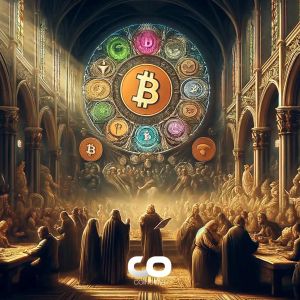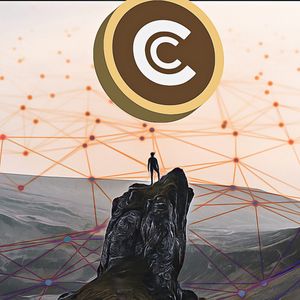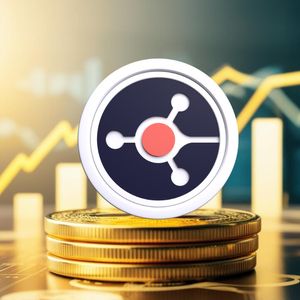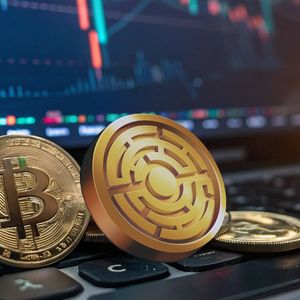As the broader crypto market navigates a landscape filled with regulatory uncertainty and evolving institutional narratives, XRP stands apart, not merely because of price action, but due to a rare and significant legal milestone. In a recent statement on X, prominent crypto figure Edo Farina declared, “The SEC lawsuit is irrelevant now. XRP is not a security. Everything else is just noise.” His comments cut to the core of what many investors and analysts are now acknowledging: XRP has legally transcended one of the most pressing overhangs in its history, and market attention is shifting decisively toward its utility, ecosystem growth, and prospects. The SEC lawsuit is irrelevant now. $XRP is not a security. Everything else is just noise. pic.twitter.com/KuySmfNK1t — EDO FARINA 🅧 XRP (@edward_farina) April 17, 2025 The Legal Turning Point The reference to XRP “not being a security” stems from the landmark decision delivered in July 2023 by U.S. District Judge Analisa Torres, who ruled that XRP, when sold on secondary markets, does not constitute a security. This ruling marked a watershed moment in the ongoing legal standoff between Ripple Labs and the U.S. Securities and Exchange Commission (SEC), which began in December 2020. At the time, the SEC alleged that Ripple had conducted an unregistered securities offering by selling XRP tokens. Judge Torres’ ruling established critical legal precedent, distinguishing between institutional sales, which may be subject to securities law, and secondary market trading by retail investors, which was ruled not to be a securities transaction. This differentiation has since become a foundation for new conversations around token classification and regulatory oversight in the U.S. For Ripple and XRP holders, this clarity eliminated a massive source of uncertainty. In that sense, Farina’s assertion that the lawsuit has become “irrelevant” reflects a broader market consensus that XRP has already achieved a unique legal clarity that few other altcoins currently possess. Shifting Toward Adoption and Utility With the legal fog lifting, XRP is now being reevaluated not through the lens of litigation risk, but through the prism of use-case viability, ecosystem development, and institutional integration. Ripple’s ongoing efforts to expand the global reach of its payment network are bearing fruit, particularly across Asia, Latin America, and the Middle East, where blockchain-based remittances and liquidity solutions are seeing accelerating demand. There are also credible discussions around the integration of RLUSD into Cardano’s Midnight sidechain, a move that could deepen interoperability and privacy-focused payment functionality in the Web3 space. The stablecoin initiative reinforces XRP’s evolving role as a bridge currency —one that can facilitate frictionless transfers across fiat and crypto ecosystems. These advancements highlight how Ripple and its core digital asset are moving forward decisively, even as the broader regulatory environment in the U.S. remains unsettled. We are on twitter, follow us to connect with us :- @TimesTabloid1 — TimesTabloid (@TimesTabloid1) July 15, 2023 Institutional Confidence and Strategic Repositioning In addition to new product rollouts and partnership discussions, XRP is also gaining renewed traction in institutional circles. Analysts and ETF specialists, including those from the ETF Institute, have suggested that altcoin-based exchange-traded products could be the next frontier in digital asset investing, especially if political shifts in the U.S. lead to a more favorable regulatory climate. Ripple CEO Brad Garlinghouse has stated publicly that it is “only a matter of time” before the SEC opens the door to XRP, Solana, and Cardano ETFs, particularly in the wake of successful spot Bitcoin ETF launches. If these projections hold, XRP could be among the first altcoins to enjoy the legitimacy and capital inflow that an ETF approval would bring. In Switzerland, the regulatory tone is already different. Financial institutions like PostFinance, a state-owned banking entity, have begun offering access to XRP and other altcoins, highlighting how international jurisdictions are forging ahead where the U.S. still hesitates. Legal Clarity as a Competitive Advantage Edo Farina’s comment underscores a powerful market truth: XRP has already won the most crucial legal battle of its life, and the ramifications are monumental. The SEC’s case, once the dominant narrative surrounding XRP, has now receded into the background as adoption metrics, ecosystem developments, and new financial products take center stage. In an industry often shaped by regulatory ambiguity, XRP’s legal clarity is not only rare—it’s a major competitive advantage. For investors, institutions, and developers, that clarity makes XRP an increasingly compelling asset in a market starved for regulatory certainty and real-world use cases. The lawsuit may have dominated headlines for years, but as Farina correctly pointed out, it’s now just noise. The real story lies in what comes next. Disclaimer : This content is meant to inform and should not be considered financial advice. The views expressed in this article may include the author’s personal opinions and do not represent Times Tabloid’s opinion. Readers are urged to do in-depth research before making any investment decisions. Any action taken by the reader is strictly at their own risk. Times Tabloid is not responsible for any financial losses. Follow us on Twitter , Facebook , Telegram , and Google News The post Pundit Says The SEC lawsuit Is Irrelevant Now, XRP Is Not a security appeared first on Times Tabloid .

















